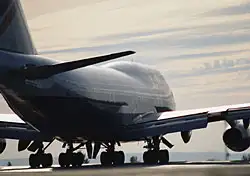
The Department of Transportation on Wednesday announced tentative plans to grant antitrust immunity to Delta and Northwest, together with their SkyTeam partners Air France, Alitalia, Czech Airlines, and KLM, allowing them to “coordinate their services and act as a single carrier for U.S.-Europe services.”
That means that the affected airlines can jointly set fares and coordinate schedules on transatlantic routes. Without the DOT’s antitrust immunity, such cooperation among airlines that would normally compete against each other would be considered collusion, and would be prosecutable as such.
So why is the DOT allowing Delta and Northwest to cooperate rather than compete? Doesn’t that fly in the face of the most fundamental of economic principles, that competition spurs airlines to keep their prices low, a clear benefit to travel consumers? That, after all, is the rationale behind antitrust laws, which are an accepted part of business life throughout most of the world.
According to Northwest’s news release, “The DOT’s decision will enable the carriers to expand their transatlantic networks by coordinating schedules and services with a single, customer-focused objective.”
There may be sound business logic underpinning the DOT’s action, but let’s hope that they were not swayed by the airlines’ claim to be motivated by the aforementioned customer-focused objective.
There can be consumer benefits to airline alliances, such as the SkyTeam group to which both Delta and Northwest belong. Coordinating flight schedules and running flights from shared terminals can ease connections between allied carriers, for example. And frequent flyer program tie-ups allow for mileage earning and redemption among all alliance members.
But permitting airlines to jointly set ticket prices can only have one outcome: higher prices. And it’s the prospect of just such higher prices, not some undefined customer-focused objective, that motivates airlines to band together into global alliances, and to seek antitrust immunity for their joint services.
So it’s distressing to see lower prices listed among the anticipated benefits of the DOT’s sanction. Again from the DOT’s announcement: “The Department tentatively concluded that the proposed alliance is in the public interest because it features a proposed new and highly integrated joint venture that will likely produce efficiencies and provide consumers with additional price and service options, such as lower fares and more nonstop and connecting flights.”
How the DOT can reconcile antitrust immunity with lower prices is a mystery that will leave mainstream economists scratching their heads. Perhaps the DOT’s obtuseness on the matter is simply the combination of a business-friendly administration in Washington together with the turmoil currently engulfing the airline industry.
Whatever the explanation for the DOT’s actions, the result is readily predictable: transatlantic travelers on SkyTeam carriers may enjoy somewhat more convenience, but they’ll have to be prepared to pay more for it.
We hand-pick everything we recommend and select items through testing and reviews. Some products are sent to us free of charge with no incentive to offer a favorable review. We offer our unbiased opinions and do not accept compensation to review products. All items are in stock and prices are accurate at the time of publication. If you buy something through our links, we may earn a commission.
Related
Top Fares From
Today's Top Travel Deals
Brought to you by ShermansTravel
Shop and Save with Country Inns...
Patricia Magaña
 Hotel & Lodging Deals
Hotel & Lodging Deals
$229 -- Chicago: Discounted Rates and...
Francesca Miele
 Hotel & Lodging Deals
$229+
Hotel & Lodging Deals
$229+
$188 -- Honolulu: Save on Oceanview...
Abigail Lamay
 Hotel & Lodging Deals
$188+
Hotel & Lodging Deals
$188+



